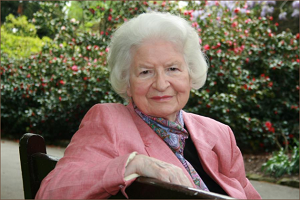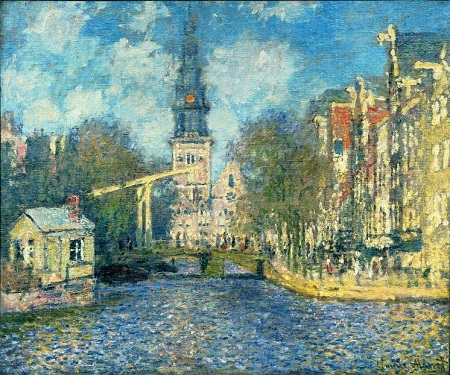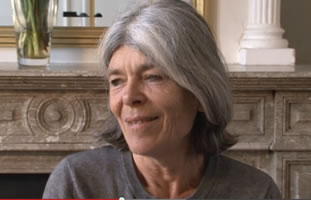De Engelse schrijfster P. D. James (eig. Phyllis Dorothy James) werd geboren op 3 August 1920 in Oxford. James groeide op in Cambridge, waar zij tot 1937 de Cambridge Girls High School bezocht. Tijdens WO II werkte zij als verpleegster. In 1941 trouwde ze met de arts Connor Bantry White, die na de oorlog ziek werd en verpleegd moest worden, zodat zij tot aan zijn dood voor beider inkomen moest zorgen. Zij werkte lang in de administratie van het staatsziekenhuis voordat zij in 1968 overstapte naar het ministerie van Binnenlandse Zaken, waar ze tot haar pensionering in 1979 bleef. In de vroege jaren 1960 begon zij naast haar werk met het schrijven van een thriller met als rechercheur een zwijgzame weduwnaar met een poëtische ader, genaamd Adam Dalgliesh. In 1972 introduceerde PD James als een van de eerste schrijvers een vrouwelijke privé-detective, Cordelia Gray, in een roman met de veelzeggende titel “An Unsuitable Job for a Woman”. Voor haar literaire werk ontving zij heel wat onderscheidingen, zoals in 1974 de Macavity Award van de Amerikaanse Mystery Readers International voor Beste Non-Fictie voor haar boek “Talking About Detective Fiction”. In 1983 werd ze door de Koningin opgenomen in de Order of the British Empire, in 1991 werd zij benoemd tot life peer als barones James of Holland Park, in het graafschap Suffolk Southwold en daardoor lid van het Britse Hogerhuis.
Uit: The Lighthouse
“Commander Adam Dalgliesh was not unused to being urgently summoned to non-scheduled meetings with unspecified people at inconvenient times, but usually with one purpose in common: he could be confident that somewhere there lay a dead body awaiting his attention. There were other urgent calls, other meetings, sometimes at the highest level. Dalgliesh, as a permanent ADC to the Commissioner, had a number of functions which, as they grew in number and importance, had become so ill-defined that most of his colleagues had given up trying to define them. But this meeting, called in Assistant Commissioner Harkness’s office on the seventh floor of New Scotland Yard at ten-fifty-five on the morning of Saturday, 23 October, had, from his first entry into the room, the unmistakable presaging of murder. This had nothing to do with a certain serious tension on the faces turned towards him; a departmental debacle would have caused greater concern. It was rather that unnatural death always provoked a peculiar unease, an uncomfortable realisation that there were still some things that might not be susceptible to bureaucratic control.
There were only three men awaiting him and Dalgliesh was surprised to see Alexander Conistone of the Foreign and Commonwealth Office. He liked Conistone, who was one of the few eccentrics remaining in an increasingly conformist and politicised service. Conistone had acquired a reputation for crisis management. This was partly founded on his belief that there was no emergency that was not amenable to precedent or departmental regulations, but when these orthodoxies failed, he could reveal a dangerous capacity for imaginative initiatives which, by any bureaucratic logic, deserved to end in disaster but never did. Dalgliesh, for whom few of the labyrinths of Westminster bureaucracy were wholly unfamiliar, had earlier decided that this dichotomy of character was inherited. Generations of Conistones had been soldiers. The foreign fields of Britain’s imperialis- tic past were enriched by the bodies of unmemorialised victims of previous Conistones’ crises management. Even Conistone’s eccentric appearance reflected a personal ambiguity. Alone among his colleagues, he dressed with the careful pinstriped conformity of a civil servant of the Thirties while, with his strong bony face, mottled cheeks and hair with the resilient waywardness of straw, he looked like a farmer. »

P. D. James (Oxford, 3 augustus 1920)



